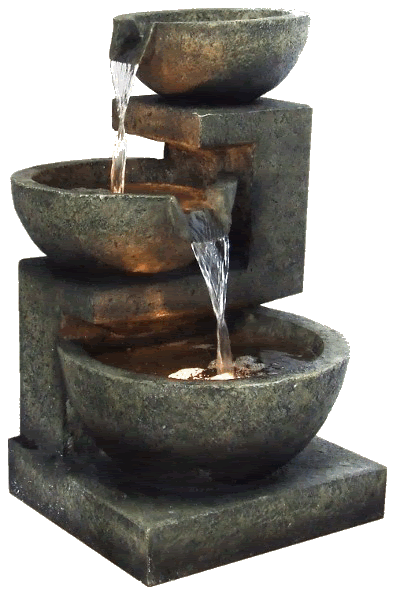All the rivers run into the sea,
Yet the sea is not full;
Unto the place from whence the rivers come,
Thiter they return again.
Eccleesiastes 1:7
Water,said the Greek philosopher Pindar,as early as the fifth century B.C.,is the best of all things.It may perhaps be an overstatement sur ,but it is certainly not suprising,especially when it is considered that it has been one of the most PRECIOUS commodities throughout man's recorded history.Water makes life(human,animal or plant)in the biosphere possible,and without it life and civilization can not develop or survive.Wars have beeen fought in then past over the availability of water ,and water,and even now relations between several countries are strained due to disputeds over management of shared water resources.
Because of the important role water plays in human survival,it has always been a subject of great interest,and the entire history of mankind can be written in terms of its need for water.From the very begginning,man realized that water is essential for the satisfaction of basic human needs,and hence early civilisations flourished on lands made fertile by major rivers:
-Tigris and Euphrates in Mesopotamia,
-Nile in Egypt,
-Indus in India and,
-Huang Ho in China
Empedocles of Agricentrum(490-430 B.C.),considered 4 primary elements or roots(rhizomata )material of the world is:
-Air
-Water
-Fire and
-Earth
But the last two in the prsent daycan be interpreted as:
- Energy and
- Land.
Philosopher like Plato and Aristotle accepted that water was the fundamental building blocks of nature!
The magnitude and complexity of water resources development and management problem in past are were not complex.Why?
-Population was small
-Per capita demand was low
-Water was plentiful
The freewheeling concept in past did not pose serious management problems.Hence,until until the early twentieth century,the demand for water,its efficiency of use and its quality were generally secondary issues.Be caution.
Biswas A.K, .1978 . Water Development,Supply and Management. (Vol.2) . Canada:Pergamon Press.



0 comments:
Post a Comment